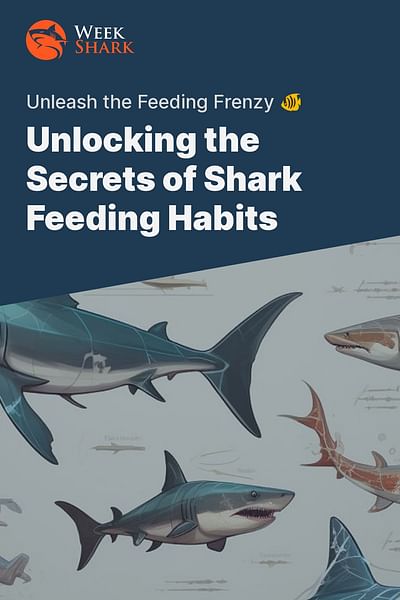Sophie Hartley is an environmental journalist with a focus on marine conservation. She has covered major stories related to shark conservation and marine pollution. Sophie's writing is sharp, insightful, and driven by her commitment to protecting the environment.
Understanding shark behavior, including their feeding habits, is crucial for both their conservation and our safety. One of the most common questions we get here at Week Shark is, "When do sharks typically feed during the day?" Let's dive right into it.
When Do Sharks Really Grab a Bite? 🦈
Sharks are opportunistic feeders, meaning they eat when they find food, regardless of the time of day. However, there are certain patterns that various species follow. For instance, many species are more active during dusk and dawn - a behavior known as being crepuscular. This is a strategic move for hunting, as the low light levels at these times can make them less visible to their prey.
Peak Feeding Times of Various Shark Species
The great white shark, one of the most iconic species, is known for its unique hunting strategy. It prefers hunting during the day, especially in the early morning and late afternoon. You can learn more about great white shark feeding habits in our article on Decoding the Shark Week Schedule.
What Makes Sharks Choose Their Meal Times? 🕰️
Several factors can influence when a shark chooses to feed. These include the availability of prey, competition from other predators, and even the phase of the moon.
To illustrate this, let's take a look at an interesting video that showcases a shark feeding frenzy occurring at night.
As demonstrated in the video, sharks can exhibit unique feeding behaviors based on various factors. Some sharks, as seen, prefer to hunt at night, making the ocean's nocturnal landscape a dynamic environment.
Just like us, sharks are individuals with their own habits and preferences. Some may prefer to hunt at night, while others might be more active during the day. It's also worth noting that feeding behavior can change based on a shark's life stage and health status.
Why Should We Care About Shark Feeding Times? 🌊
Understanding shark feeding times is not just fascinating - it also has practical implications. For swimmers, divers, and surfers, knowing when sharks are most likely to be hunting can guide decisions about when to avoid the water. Check out our FAQ on effective ways to protect oneself from a shark attack for more safety tips.
When do you think sharks are most active?
Based on your knowledge or what you've read so far, when do you think sharks are most likely to be hunting? Remember, there's no wrong answer - we're just curious about your thoughts! 🦈
For researchers and conservationists, knowledge of shark behavior patterns is vital for effective management strategies. Check our FAQ on insights into shark behavior to learn more about ongoing research in this area.
Remember, sharks are an essential part of our ecosystem, and understanding their behavior is key to ensuring their survival and the health of our oceans.
As we continue to explore the world of sharks, let's not forget the beauty and importance of the ecosystems they inhabit.
This stunning sunset over the ocean is a gentle reminder of what we stand to lose if we fail to protect these magnificent creatures and their habitats.
Stay tuned for more shark week updates and dive deeper into the fascinating world of sharks with us.















